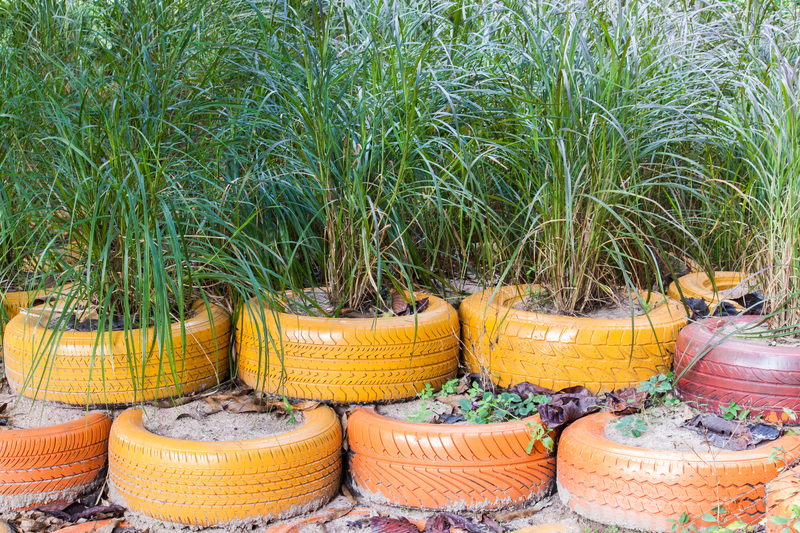Smart Budgeting for Efficient Bulky Waste Disposal
Properly managing bulky waste disposal is a crucial aspect of modern environmental responsibility. In today's eco-conscious world, finding cost-effective ways to get rid of large, unwanted items is just as important as maintaining a clean household or business. This comprehensive article will explore smart budgeting techniques for efficient bulky waste disposal, ensuring you save money while helping the planet.

Understanding Bulky Waste: What Falls Under Bulky Waste?
Bulky waste typically refers to items that are too large to be collected through regular municipal waste streams. Such items often include:
- Furniture (sofas, mattresses, wardrobes)
- Large appliances (refrigerators, ovens, washing machines)
- Rugs and carpets
- Garden waste (branches, tree stumps, sheds)
- Old electronics (TVs, computers, monitors)
- Construction debris (bricks, tiles, bathtubs)
These large waste items require unique handling, both due to their size and their potential environmental impact. Efficient bulky waste disposal means ensuring safe, environmental-friendly, and economically viable methods of removal.
Why Is Smart Budgeting Essential for Bulky Waste Disposal?
Bulky waste clearance can often be expensive. However, by implementing smart budgeting techniques, individuals and businesses can ensure that they dispose of these items efficiently and affordably. Here's why budgeting matters:
- Cost Control: Bulky waste disposal often involves fees for collection, transportation, and landfill/recycling.
- Environmental Impact: Proper budgeting prevents illegal or improper dumping, which can have environmental penalties.
- Organization: Knowing your disposal costs allows for better planning and resource allocation.
- Maximizing Value: A well-designed budget uncovers opportunities to reuse, recycle, or donate, potentially lowering overall costs.
How to Create a Bulky Waste Disposal Budget
Creating a budget for efficient bulky waste management involves several key steps. Each step ensures that you take a structured approach, accounting for aspects that affect both cost and efficiency.
1. Assess the Types and Volume of Bulky Waste
- List all items that require disposal
- Estimate their size, weight, and material type
- Identify any hazardous components (e.g., refrigerants, batteries)
Understanding what you have to dispose of will help you find the most effective collection or disposal services for your needs.
2. Research Local Disposal Options and Regulations
- Contact your municipal waste department for large item pickup costs and schedules
- Check for free community bulk waste drop-off events
- Understand local recycling guidelines for different materials
Each region may have its own set of rules regarding large waste disposal. Knowing these can help you avoid fines and unnecessary costs.
3. Consider Donation or Resale for Usable Items
Before discarding, determine if any of your bulky items are suitable for donation or resale. Many charitable organizations, thrift shops, or even online marketplaces will collect usable furniture or appliances for free. This can significantly reduce your disposal costs and benefit your community.
- Contact local charities for furniture and appliance pickups
- Use online marketplaces (Facebook Marketplace, Craigslist, etc.)
- Host a yard sale for unwanted bulk items
4. Get Quotes from Professional Waste Collection Services
- Contact at least three reputable bulky waste removal companies
- Request detailed breakdowns of their charges (per item, volume, weight, distance, etc.)
- Ask about discounts for larger loads or community clean-up events
Comparing multiple providers helps you obtain the most competitive rate and ensures responsible disposal of your items.
5. Plan for Transportation
If hiring a professional service is beyond your budget, consider DIY bulky waste disposal yet factor in the costs:
- Vehicle rental or borrowing a truck/van
- Fuel and possible toll costs
- Disposal or landfill fees
- Labor (for lifting and carrying heavy items)
6. Set Aside a Contingency Fund
Sometimes projects end up being bigger than anticipated. Make sure to have a modest buffer (10-20% of your total budget) for unexpected expenses, such as extra trips, broken items, or additional fees.
Smart Strategies for Managing Bulky Waste on a Budget
Once you have established your budget, apply these practical strategies to maximize your efficiency and savings.
1. Plan your Disposal Schedule Strategically
- Take advantage of municipal free collection days.
- Group similar items together to minimize pickup costs.
- Coordinate with neighbors for shared removal to benefit from group discounts.
By organizing your disposal around scheduled events or shared services, you can significantly lower your costs.
2. Reduce, Reuse, Recycle
Adopt a "Waste Hierarchy" approach:
- Reduce: Buy only what you need--limit accumulation of large items.
- Reuse: Repurpose bulky items for new uses within your home or donate them.
- Recycle: Dismantle items into recyclable components where possible (e.g., metal, wood, glass, plastic).
3. DIY Upcycling Projects
*Instead of disposing, consider transforming old bulky furniture or appliances into something new or functional:*
- Turn a worn-out dresser into a garden planter
- Convert old doors into shelving units
- Use pallets to construct outdoor furniture
Leveraging creativity can reduce waste, beautify your space, and save money.
4. Negotiate and Compare Bulky Waste Collection Services
Don't accept the first quote. Negotiate for bulk discounts or price matching, especially if you have multiple items or are coordinating a neighborhood collection.
- Ask about ongoing promotions
- See if consolidating pickups with neighbors results in price breaks
5. Use Community Resources and Local Forums
Many communities have free online resources or forums for exchanging or giving away large items. Sites like Freecycle or local Facebook groups can be valuable platforms for both disposing of and sourcing usable bulky items at no cost.
- List items as "free to collect"
- Search for local "giveaway" groups
- Use municipal message boards for large garbage day notifications
Hidden Costs and How to Avoid Them in Bulky Waste Management
Budgeting effectively means being aware of commonly overlooked costs related to bulky waste disposal. Here are some pitfalls to watch out for:
- Hidden fees: Some collection services charge extra for items with hazardous materials (e.g., electronics, mattresses with bedbugs, fridges with refrigerants).
- Weight limits: Overloading vehicles or containers may incur additional fees.
- Permit requirements: DIY disposal at landfills or transfer stations may require permits or special passes.
- Missed pickups: Failing to prepare items properly for collection may result in missed pickups and rescheduling charges.
Reading the fine print of any bulky waste removal contract and asking about potential surcharges can save money and avoid surprises.
The Environmental and Social Benefits of Efficient Bulky Waste Disposal
Effective budgeting for large waste removal doesn't just save money--it contributes positively to your local environment and community. Here's how:
- Diverts items from the landfill: More items are reused or recycled rather than simply disposed of.
- Supports local charities: Donations of furniture and appliances help families in need.
- Reduces carbon footprint: Fewer trips and optimized transportation minimize emissions.
- Prevents illegal dumping: Affordable disposal decreases the risk of items being improperly discarded in nature or abandoned on streets.
Learn more about recycling and composting from official sources.
Technology and Innovation in Cost-Effective Bulky Waste Disposal
Technological advancements and innovation in recycling offer exciting possibilities for smart bulky waste management:
- Online booking apps: These platforms allow you to schedule pickups, compare prices, and track collections from your smartphone.
- Eco-friendly dismantling services: Specialized companies safely break down electronics and appliances for component recycling.
- Data-driven scheduling: Some cities use sensors or data tools to optimize waste collection routes, saving both fuel and money.
By taking advantage of these solutions, you can increase your efficiency and minimize your environmental impact.

Smart Budgeting Checklist for Bulky Waste Disposal
- Assess and categorize all items to be disposed of
- Check municipal collection schedules and costs
- Explore options for resale, donation, or upcycling
- Collect service quotes and compare offers
- Account for DIY costs (vehicle, fuel, manpower, permits)
- Include a 10-20% contingency fund
- Monitor for hidden costs or special requirements
- Leverage technology and community resources
Conclusion: Save Money & Environment with Smart Bulky Waste Disposal
Efficiently disposing of large, unwanted items doesn't have to break the bank--or contribute to landfill overload. By applying the principles of smart budgeting for bulky waste disposal, you can safeguard your wallet and your environment. Remember to focus on planning, grouping disposals, seeking community resources, comparing services, and embracing creative reuse whenever possible.
Whether you are handling a single home clear-out or orchestrating a massive community clean-up, these steps will help you achieve efficient, affordable, and environmentally responsible bulky waste disposal every time.
Start Smart--Start Saving!
If you're ready to declutter or face a big clean-up, revisit these strategies and build your bulky waste disposal budget with confidence. Your home, your community, and your planet will thank you!